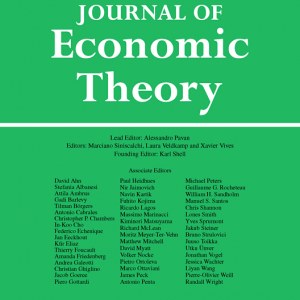
\van den Brink\, R., Núñez, M. and Robles, F. (2021). Valuation monotonicity, fairness and stability in assignment problems Journal of Economic Theory, 195:1--27.
-
Affiliated author
-
Publication year2021
-
JournalJournal of Economic Theory
In two-sided assignment markets with transferable utility, we first introduce two weak monotonicity properties that are compatible with stability. We show that for a fixed population, the sellers-optimal (respectively the buyers-optimal) stable rules are the only stable rules that satisfy object-valuation antimonotonicity (respectively buyer-valuation monotonicity). Essential in these properties is that, after a change in valuations, monotonicity is required only for buyers that stay matched with the same seller. Using Owen's derived consistency, the two optimal rules are characterized among all allocation rules for two-sided assignment markets with a variable population, without explicitly requiring stability. Whereas these two monotonicity properties suggest an asymmetric treatment of the two sides of the market, valuation fairness axioms require a more balanced effect on the payoffs of buyers and sellers when the valuation of buyers for the objects owned by the sellers change. For assignment markets with a variable population, we introduce grand valuation fairness requiring that, if all valuations decrease by the same amount, as long as all optimal matchings still remain optimal, this leads to equal changes in the payoff of all agents. We show that the fair division rules are the only rules that satisfy this grand valuation fairness and a weak derived consistency property.